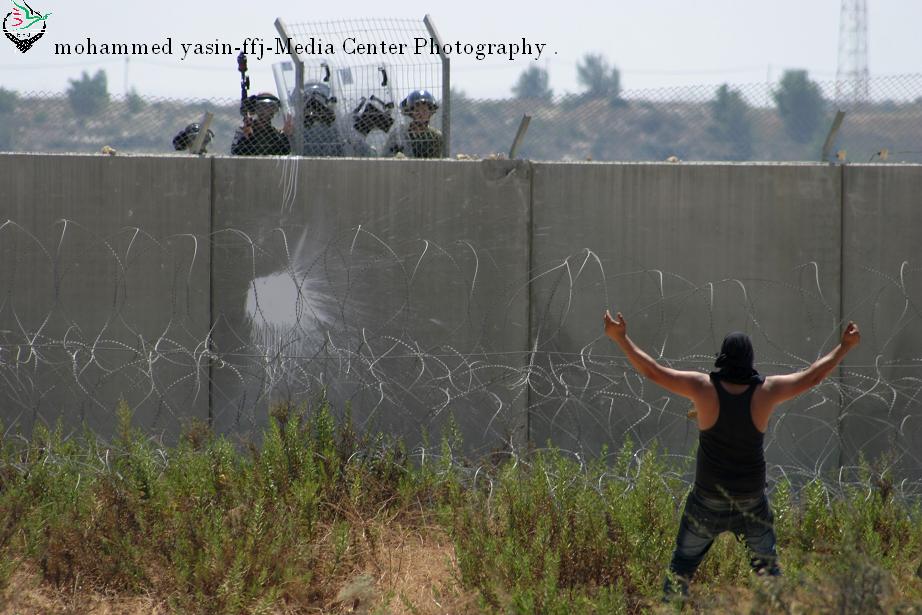Year: 2013
-
Video- Soldiers assault a twelve-year-old Palestinian while settlers invade family rooftop in Hebron
3rd August 2013 | International Solidarity Movement, Khalil Team | Hebron, Occupied Palestine Saturday August 3rd was not a peaceful Saturday for the Palestinians in Hebron. At approximately 16.30 two settlers invaded the roof of the Abu Shamsiya family in Tel Rumeida, whilst three soldiers attacked a twelve year old boy in the street nearby.…
-
UPDATED: Four arrested at Nabi Saleh’s weekly protest
3rd August 2013 | International Solidarity Movement, Ramallah Team | Nabi Saleh, Occupied Palestine Update 3th August: The fourth Israeli activist was released this morning at 5am. ******* On Friday August 2, Israeli Border Police aggressively attacked protesters marching in Nabi Saleh’s weekly demonstration, shooting rubber-coated steel bullets and sound bombs at very short distances…
-
Photo Essay: Ongoing resistance in Bil’in
2nd August 2013 | Friends of Freedom and Justice | Bil’in, Occupied Palestine Dozens of Palestinian, international and Israeli activists participated at today’s demonstration against the apartheid wall and land annexation organised by the Popular Committee Against the Wall and Settlements in Bil’in. The demonstration was dedicated to the Palestinian Bedouins in Al Nakab and…


